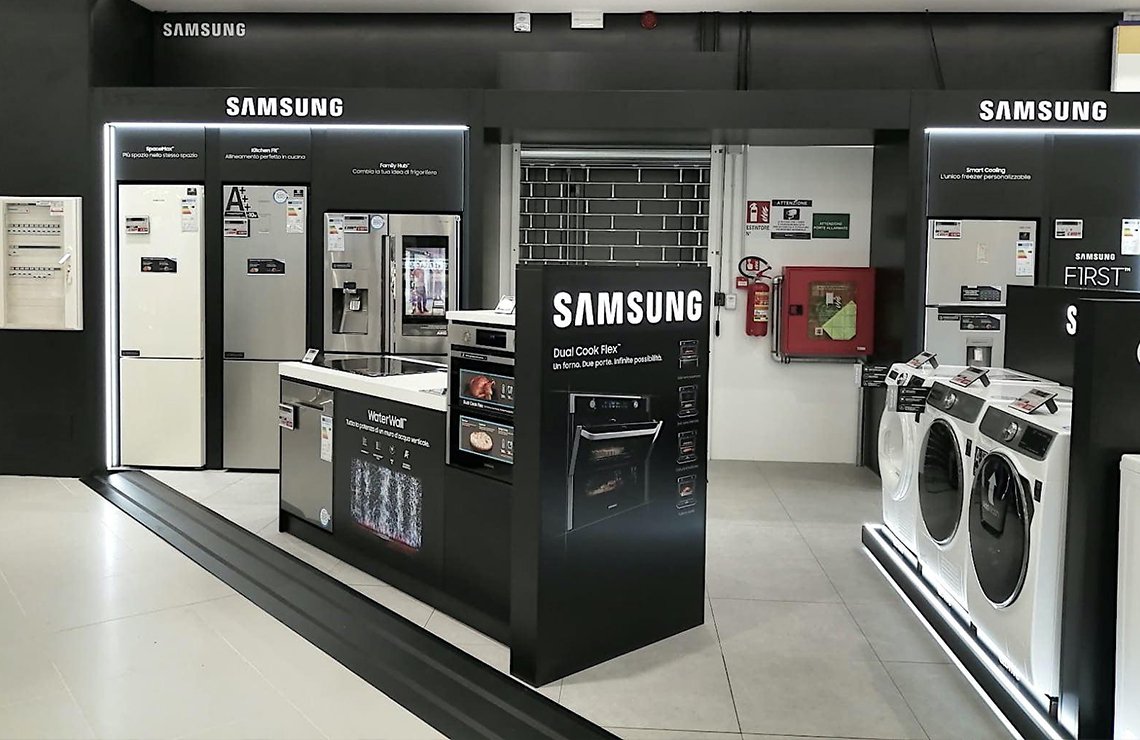Samsung: A Global Technology Powerhouse Pioneering Innovation and Connectivity

Samsung has established itself as a global leader in technology, driving innovation and shaping the future of consumer electronics. From its early days as a South Korean trading company to its present status as a tech titan, Samsung has consistently pushed the boundaries in fields ranging from smartphones and televisions to home appliances and semiconductor technology. In this blog, we’ll take a closer look at Samsung’s impact on the tech world, its innovations, and its plans for the future.
1. A Brief History of Samsung
Founded in 1938 as a trading company, Samsung started its journey selling dried-fish and locally grown groceries. It wasn’t until the 1960s that Samsung entered the electronics industry, and since then, it has expanded its influence to become one of the world’s largest conglomerates.
In 1970, Samsung produced its first black-and-white television, marking the company’s entry into the electronics market. The 1980s saw Samsung expanding its reach globally and entering the semiconductor business, where it now stands as one of the largest manufacturers. Over the decades, Samsung has continued to grow its expertise, becoming known for its high-quality displays, cutting-edge smartphone technology, and an array of consumer electronics.
2. Samsung’s Product Ecosystem
One of Samsung’s greatest strengths is its diverse product ecosystem, which covers nearly every aspect of modern living.
- Smartphones and Tablets: Samsung’s Galaxy lineup has redefined mobile technology. Known for high-quality displays, powerful processors, and advanced cameras, Galaxy devices—from the flagship Galaxy S and Galaxy Z series to the Galaxy Note and Galaxy A series—have garnered a massive global following. Samsung’s innovation in foldable screens with the Galaxy Z Fold and Z Flip series has set the company apart as a pioneer in the foldable smartphone market.
- Home Appliances: Samsung’s commitment to smart home technology is evident in its appliances, including refrigerators, washing machines, and ovens, which can connect with other devices for a seamless, integrated experience. The Family Hub refrigerator, for example, offers a touchscreen interface, voice commands, and compatibility with smart home devices, making it a centerpiece of the modern connected kitchen.
- Smart TVs and Displays: Samsung leads the television market, thanks in part to its proprietary QLED and OLED technology. Its 8K TVs deliver exceptional picture quality, and the company’s development of “The Frame” TV—which doubles as a digital art frame when not in use—has been particularly popular among design-conscious consumers.
- Wearable Devices: The Galaxy Watch series and Galaxy Buds provide Samsung users with wearable tech that is both stylish and functional. Samsung’s wearables integrate seamlessly with Galaxy smartphones, enabling features like health monitoring, music control, and even fitness coaching.
- Semiconductors and Components: Not only does Samsung create products for the consumer market, but it also powers many devices from other brands. Samsung’s semiconductor division produces memory chips, processors, and displays that are used in products worldwide, making it one of the largest component suppliers.
3. Innovations that Set Samsung Apart
Samsung is known for embracing change and pushing technological limits. Here are some areas where Samsung has been particularly innovative:
- Foldable Screen Technology: Samsung was among the first to bring foldable smartphones to the mainstream market with the Galaxy Z series. These devices use flexible AMOLED displays that can be folded in half, offering users the portability of a smartphone with the screen size of a tablet.
- 5G Technology: Samsung has been at the forefront of 5G development, both in its smartphones and its telecommunications equipment. The Galaxy S20 series was one of the first to feature 5G connectivity, allowing for faster data speeds and low-latency applications like augmented reality (AR) and virtual reality (VR).
- QLED and MicroLED Technology: In the television market, Samsung has pushed for better color, contrast, and energy efficiency with its QLED technology. The recent introduction of MicroLED displays provides an alternative to OLED, offering a brighter, longer-lasting screen without the risk of burn-in.
- Artificial Intelligence (AI) Integration: AI is a central part of Samsung’s product offerings, especially in its Bixby voice assistant, smart cameras, and home automation features. The SmartThings platform connects Samsung devices in a unified ecosystem, allowing users to control home settings, monitor appliances, and even automate household tasks through AI-driven routines.
4. Sustainability and Corporate Responsibility
Samsung has taken meaningful steps to make its products more eco-friendly. The company’s “Galaxy for the Planet” initiative is aimed at reducing waste, cutting carbon emissions, and increasing the use of recycled materials in its products. Samsung’s new packaging design for its phones and TVs minimizes single-use plastic, while some Galaxy devices now include materials made from recycled ocean-bound plastic.
The company also engages in several corporate social responsibility (CSR) initiatives, such as Samsung Solve for Tomorrow, a competition that encourages young people to develop solutions for real-world problems, fostering creativity and innovation among students.
5. Samsung’s Future Vision: The Role of AI, IoT, and 6G
Samsung’s roadmap for the future is centered on artificial intelligence, the Internet of Things (IoT), and 6G technology. Samsung envisions a hyper-connected world where all devices—whether home appliances, vehicles, or wearable devices—are seamlessly integrated and controlled through AI and IoT.
In the telecommunications realm, Samsung is actively researching 6G, aiming to bring next-gen connectivity by 2030. Samsung’s AI-powered software and 6G networks could support applications like holographic communications, VR classrooms, and highly responsive autonomous vehicles.
Related Resources:
For more information about Samsung’s latest products and initiatives, here are some helpful links:
- Samsung Official Website
- Samsung Galaxy Smartphones
- Samsung SmartThings Platform
- Samsung Corporate Social Responsibility
Conclusion
Samsung’s journey from a small South Korean company to a global technology leader reflects its dedication to innovation and excellence. By staying ahead of industry trends and pioneering new technologies, Samsung has carved a unique place in the world of consumer electronics. From foldable smartphones to AI-driven smart home systems, Samsung’s commitment to improving lives through technology is evident. With ambitious plans for AI, IoT, and 6G, Samsung is well-positioned to continue shaping the future of technology for years to come.



